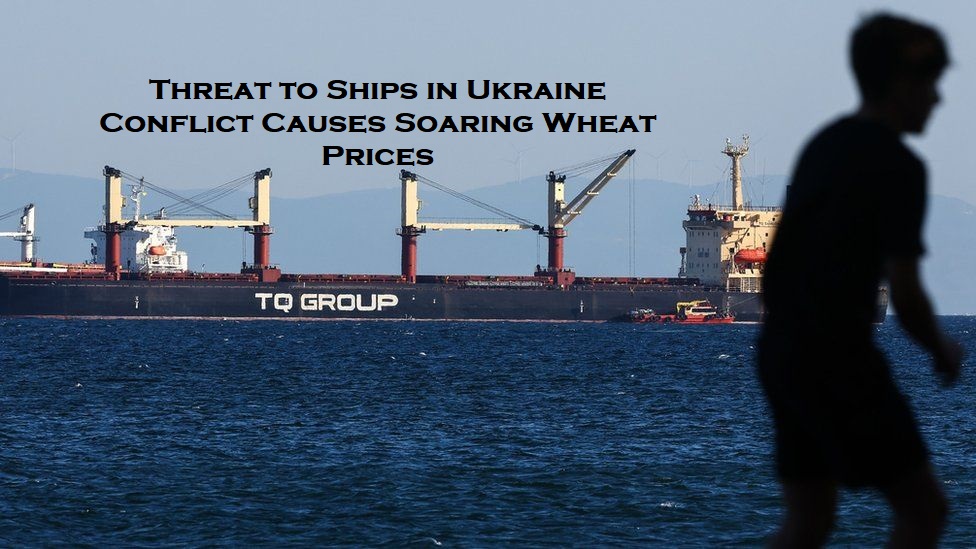Threat to Ships in Ukraine Conflict Causes Soaring Wheat Prices

Wheat prices on the global markets have experienced a sharp rise following Russia’s declaration that it would consider ships heading to Ukrainian ports as potential military targets. This decision came after Moscow withdrew from a UN agreement that guaranteed safe passage for grain shipments through the Black Sea. In recent nights, Russia has launched attacks on Ukraine’s grain facilities in cities like Odesa. The White House has accused Russia of planning to attack civilian ships and then falsely blaming Ukraine for it. As a result of these developments, European stock exchange wheat prices surged by 8.2% to €253.75 per tonne, with corn prices also rising by 5.4%. US wheat futures recorded their highest daily increase since Russia’s invasion of Ukraine in February 2022, jumping 8.5%. President Vladimir Putin has expressed willingness to return to the international grain agreement if certain demands, including the lifting of sanctions on Russian grain and fertiliser sales, are met.
Amid these escalating tensions, Russian air strikes continued in Black Sea coastal cities for three consecutive nights, leading to civilian casualties. The attacks have targeted grain export infrastructure and raised concerns about the safety of shipping routes for essential food supplies. Ukraine’s options for exporting grain by rail are limited, with rail capacity smaller than shipping volumes, and some EU countries in Eastern Europe blocking Ukrainian grain to protect their own farmers.
Analysts have warned that Russia’s threatened escalation could disrupt waterborne grain shipments from the Black Sea, impacting both Russian and Ukrainian exports. Some Ukrainian officials have called on the UK, US, France, and Turkey to provide military convoys and air defenses to protect grain ships heading to Odesa.
The situation has raised concerns about potential impacts on global food security and inflation, particularly in developing countries, leading to social instability, food shortages, and increased migration. Critics accuse Russia of using food supplies as a political tool in its conflict with Ukraine.
Picture Courtesy: Google/images are subject to copyright
